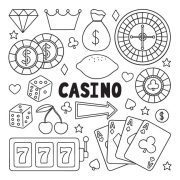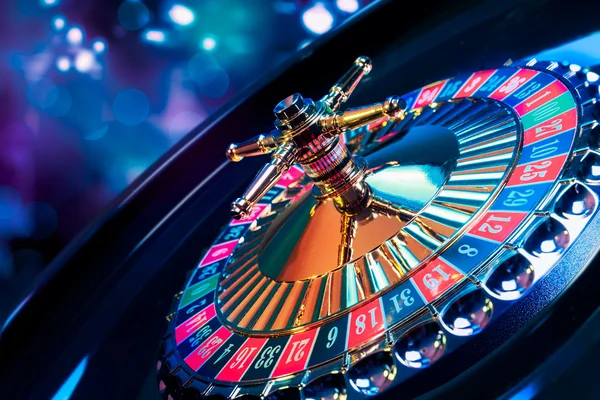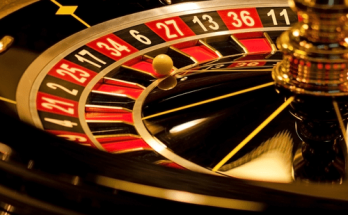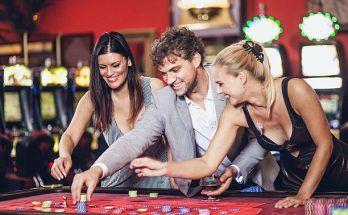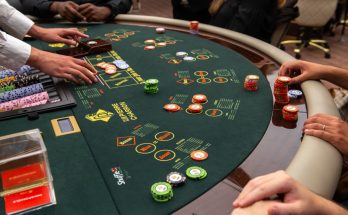When players first visit an online casino such as rabonacasino-greece.gr, gambling might seem merely a recreational activity, offering excitement, entertainment, and a chance at winning. However, after repeatedly placing hundreds – or even thousands – of bets, something significant begins to shift in the gambler’s brain, behavior, and emotional landscape.
This transformation isn’t simply about habit-forming; it’s an intricate process that gradually reshapes decision-making, emotional reactions, and even neurological patterns. Understanding how this change happens, especially after surpassing the threshold of around 1000 bets, provides valuable insights into gambling addiction’s subtle yet profound mechanics.
In this article, we delve into the detailed psychology and neurobiology of gambling addiction, examining exactly how human behavior evolves after extensive gambling experiences at online platforms.
Understanding the Early Stages: The Excitement of Initial Bets
Novelty and Thrill of Gambling
Initially, gambling is often perceived purely as entertainment. Early bets are exciting and full of novelty. Players experience a heightened sense of anticipation, thrill, and emotional satisfaction when placing wagers. Every spin of the roulette wheel or slot reel at casino feels fresh and intriguing, significantly stimulating the brain’s reward pathways.
Dopamine Release and Initial Pleasure
During these early stages, the brain releases dopamine – a neurotransmitter associated with pleasure, reward, and motivation. Wins reinforce dopamine surges, creating positive emotional associations with gambling. Even small victories stimulate a powerful sense of achievement, further enticing players to continue betting.
Crossing the Threshold: Behavioral Changes After 1000+ Bets
Shift From Pleasure to Compulsion
After hundreds or thousands of bets, a subtle yet critical shift occurs. Gambling transitions from voluntary excitement to involuntary compulsion. Players no longer gamble purely for pleasure; instead, they feel driven to continue betting even without deriving substantial enjoyment or significant rewards.
This compulsion isn’t about rational decision-making. Rather, it becomes deeply rooted in subconscious psychological and neurological changes, significantly affecting players’ overall behavior and emotional control.
Neurological Changes in Habit Formation
At a neurological level, repeated gambling transforms the brain’s reward system. Initially, the brain’s dopamine response occurs with each win. However, after thousands of bets, dopamine responses shift to anticipation rather than outcomes. Players experience dopamine surges not only when winning but increasingly from merely anticipating potential wins, reinforcing compulsive betting behavior regardless of actual outcomes.
Psychological Mechanisms Driving Addiction
Illusion of Control
A significant psychological factor contributing to behavioral changes involves the illusion of control. Experienced gamblers at platforms develop irrational beliefs, thinking they can influence random outcomes through betting strategies, rituals, or perceived patterns. These cognitive distortions strengthen addictive behaviors, fueling continuous gambling despite clear financial losses.
Gambler’s Fallacy and Cognitive Distortions
Another prevalent cognitive distortion is the gambler’s fallacy – the erroneous belief that past outcomes influence future probabilities. After placing numerous bets, gamblers become increasingly convinced that luck must change, prompting further risky betting behaviors, even against rational judgment and financial realities.
Emotional Consequences of Extensive Gambling
Increased Anxiety and Stress
Continuous gambling creates emotional volatility, significantly increasing stress and anxiety. With every loss, gamblers feel greater anxiety, yet paradoxically become compelled to continue gambling, hoping to alleviate negative emotions. Over time, gambling transforms from recreational enjoyment into a coping mechanism for stress – ironically intensifying emotional distress further.
Emotional Numbness and Desensitization
Prolonged gambling frequently causes emotional desensitization. Players become emotionally numb, less affected by wins or losses. After thousands of bets, emotional reactions become subdued, leading gamblers to pursue larger, riskier bets simply to feel any significant emotional stimulation – reinforcing problematic gambling behaviors.
Social and Behavioral Implications of Addiction
Isolation and Withdrawal From Social Activities
Gambling addiction commonly leads to social isolation. Players withdraw from family, friends, and social engagements, preferring solitude while betting at online casinos. This social withdrawal further exacerbates addictive behaviors, removing social support systems that could otherwise help mitigate gambling impulses.
Behavioral Changes: Increased Irritability and Mood Swings
Extensive gambling often produces noticeable behavioral changes. Players become irritable, impatient, or moody, especially when not gambling. Friends and family typically notice behavioral shifts, describing gamblers as “changed” or “different” individuals compared to their pre-gambling personalities.
The Role of Financial Loss in Behavioral Shifts
Financial Pressure and Escalating Bets
After thousands of bets, financial pressure becomes increasingly severe. Gamblers frequently respond by escalating bets, attempting to recover previous losses quickly. This behavior, known as “chasing losses,” typically intensifies financial problems further, creating a dangerous gambling spiral.
Cognitive Bias Toward Recovery Attempts
Cognitive biases strongly influence gamblers’ decisions after significant losses. Players irrationally believe they can recover losses with continued gambling. Despite mounting evidence of financial damage, gamblers remain convinced that “the next big win” is imminent, leading to increasingly reckless betting behavior.
Biological Underpinnings: The Brain on Gambling
Changes in Brain Structures
Neurologically, repeated gambling leads to structural changes in the brain, notably in regions involved in reward processing, decision-making, and impulse control. Studies indicate that chronic gambling affects brain structures such as the prefrontal cortex and striatum, impairing rational decision-making and increasing impulsivity, thus perpetuating addictive behaviors.
Reduction in Natural Dopamine Production
Long-term gambling reduces the brain’s natural dopamine production, creating dependency on gambling stimuli for emotional satisfaction. Players no longer derive pleasure from normal daily activities, instead requiring gambling’s artificial dopamine spikes to feel emotionally balanced – intensifying addiction severity significantly.
Recognizing the Signs of Problem Gambling
Behavioral Red Flags
Recognizing gambling addiction requires understanding behavioral red flags, including increased secrecy, isolation, financial difficulties, and persistent preoccupation with gambling. Loved ones frequently notice these signs, prompting interventions and support strategies.
Emotional Indicators of Gambling Addiction
Emotionally, gambling addiction manifests as heightened anxiety, mood swings, depression, or emotional numbness. Players frequently display increased irritability, emotional withdrawal, and diminished interest in previously enjoyable activities, further confirming gambling addiction’s emotional consequences.
Strategies for Addressing Gambling Addiction
Professional Support and Intervention
Professional psychological intervention remains crucial for addressing gambling addiction effectively. Therapies such as cognitive-behavioral therapy (CBT) help gamblers recognize cognitive distortions, develop emotional management strategies, and establish healthier behaviors, significantly improving recovery outcomes.
Responsible Gambling Practices
Platforms proactively promote responsible gambling practices, including self-exclusion programs, betting limits, reality checks, and accessible support resources. Encouraging players to utilize these measures early significantly reduces addiction risk and promotes healthy gambling behaviors.
Future Trends: Technological Solutions and Prevention
AI and Real-Time Behavioral Analysis
Future casinos may employ artificial intelligence (AI) technologies for real-time player behavior analysis. AI algorithms could proactively identify problematic gambling behaviors, intervening early with personalized support resources or immediate gambling limits, effectively mitigating addiction risks.
Virtual Reality and Addiction Therapy
Virtual reality (VR) may revolutionize addiction therapy, providing immersive therapeutic environments for addressing gambling addiction. VR-based cognitive therapies could help gamblers practice emotional regulation, impulse control, and decision-making skills in realistic, controlled virtual settings, significantly improving therapeutic effectiveness.
Why Players Trust Casinos
Reputable online casinos build player trust through transparency, responsible gambling policies, secure transactions, and robust player support resources. Players confidently choose these platforms, knowing they prioritize responsible gambling behaviors, player safety, and emotional wellbeing.
Conclusion: Recognizing and Managing Gambling Addiction
Understanding how gambling transforms behavior after extensive betting experiences provides critical insights into addiction’s mechanics. After 1000+ bets, players experience significant psychological, emotional, social, and neurological changes, reinforcing compulsive gambling behaviors.
Awareness about these changes encourages players, family members, and casinos to proactively recognize gambling addiction signs, intervene early, and support healthy gambling practices. Ultimately, comprehending addiction mechanics enhances responsible gambling behaviors, emotional management, and overall player wellbeing – ensuring gambling remains an enjoyable, emotionally sustainable recreational activity.
